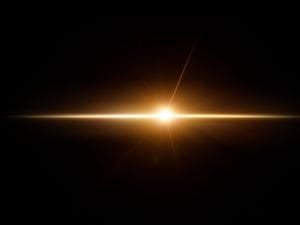
The creation story can be found in Genesis one and two with the story of what occurred in the Garden of Eden in chapter three. Genesis 1 starts before the existence of anything but God Himself. His revelation of Himself and His will for humanity is the start of the creation story. According to Genesis 1, in the beginning, God made everything in the universe, including all the heavenly bodies, as well as everything on the earth.
While the true nature of God isn’t explicit in the Genesis story, God does share an “us” within the Godhead. The Spirit is active in creation, as is Jesus. In the six days of creation, God created the universe, light, and the earth; the sky and atmosphere; dry land and plant life; the stars, heavenly bodies, the sun and moon; birds and water creatures; land animals and man. Humanity is unique above all creatures because they bear the image of God, as described in Genesis 1:27, and must subdue and steward the earth.
All of creation was finished in six days in all its wondrous beauty and vast array. God announced that His creation was “very good.” Genesis 2 sees the end of God’s creative work and gives a detailed account of man’s creation. The seventh day of creation is marked by God’s resting. The rest doesn’t suggest that God was tired. Instead, His rest was simply an end of work. God was finished, and the universe was just as He wanted it to be. His six days of work, followed by a day of no work, established a pattern of taking one day in seven for rest and set the number of days in the week that we still use today. Exodus 20:8-11 says the keeping of the Sabbath became a distinguishing mark of God’s chosen people.
Genesis 2 takes an in-depth look at man’s creation. This passage isn’t a second creation story or contradictory to Genesis 1. Genesis 2 takes a step back from a direct report to refocus the reader on God’s work concerning man. God created man from the earth’s dust that He previously created. After creating man’s body, God breathed life into him. The fact that God chose to create man this way shows His great care in the process. Next, God put the first man, Adam, in a unique place, the Garden of Eden. Eden was bountiful and beautiful, and Adam had everything he needed, including food and productive work. However, God wasn’t finished with man.
God helped Adam see his need for a companion by having him look over all the other creatures and naming them, as detailed in Genesis 2:19-20. When the naming process was over, Adam understood what he lacked, so God put Adam to sleep and formed Eve with as much care as He formed Adam. She was made from Adam’s rib, so when God brought Eve to Adam, he immediately understood that she was special. She was his complement, counterpart, and flesh of his flesh.
How could there be light on the first day of Creation if the sun wasn’t created until the fourth day?
The question of how there could be light on the first day of Creation when the sun wasn’t created until the fourth day is common. Genesis 1:3-5 says God said to let there be light, and there was light. God saw the light was good, so He separated the light from the darkness. He called it ‘day,’ and the darkness was named ‘night.’ There was evening, and there was morning, the first day. A few verses later, we’re told that God said the lights of the sky separated the night from the day and served as signs to mark days, years, and seasons, and let them be lights in the sky to light the earth, and it was so.
God made two great lights: the light to govern the day and the light to oversee the night. He also made the stars and set them in the expanse of the sky to light the earth, oversee the day and night, and separate darkness from light, and God saw that it was good. There was morning and evening on the fourth day, as detailed in Genesis 1:14-19, but how can this be? How could there be light, evenings, and mornings on the first, second, and third days if the sun, moon and stars weren’t created until the fourth day? This is only an issue if we fail to realize that God is omnipotent and infinite. God doesn’t need the stars, sun, and moon to give light because He is light. First John 1:5 says that God is light and there’s no darkness.” God Himself was the light for Creation’s first three days, just as He would be in the new heavens and earth.
Revelation 22:5 reminds us that there will be no more light, and we won’t need the light of a lamp or the light of the sun because God will give us light, and He will reign forever and ever. Until God made the cosmos, He miraculously provided light during the day and might’ve done so during the night, according to Genesis 1:14. In John 8:12, Jesus said that He is the world’s light and whoever follows Him will never walk in darkness, but they’ll have the light.
More important than the light of night and day is the Light who gives eternal life to all who believe in Him. Those who don’t believe in Him will be doomed to darkness, where there’s gnashing of teeth and weeping.The reality of the creative power of God’s voice has critical spiritual implications that go beyond the creation story itself. Light is typically used as a metaphor in the Bible, and the word “illumination” refers to bringing things into the light. When God said, “Let there be light,” and light appeared at creation, it showed God’s absolute control and creative power. The physical light that God created on the first day is an excellent picture of what He does in every heart that trusts Jesus, the True Light. Because God is who He is, light was possible on the fourth day of creation because He is the light that shines in everyone who believes in Him.

